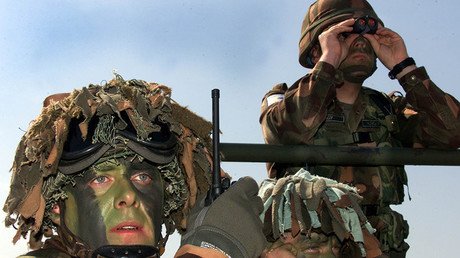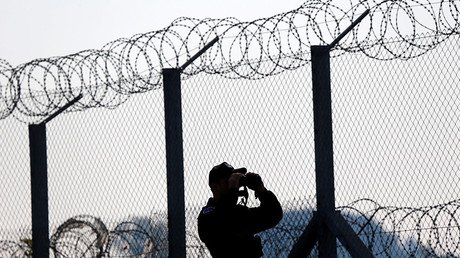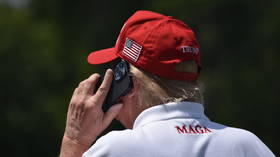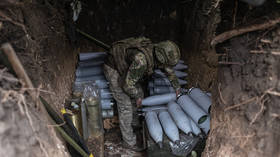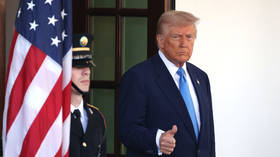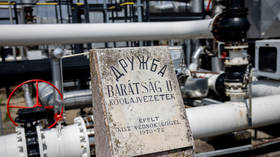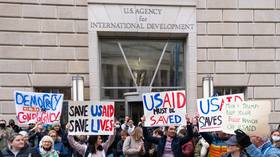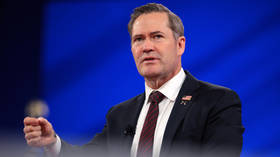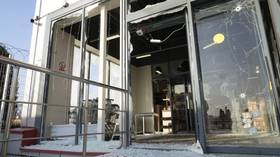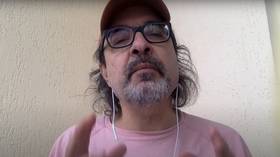Bulgarian activists erect border fence to deter Turkish ‘election provocations’
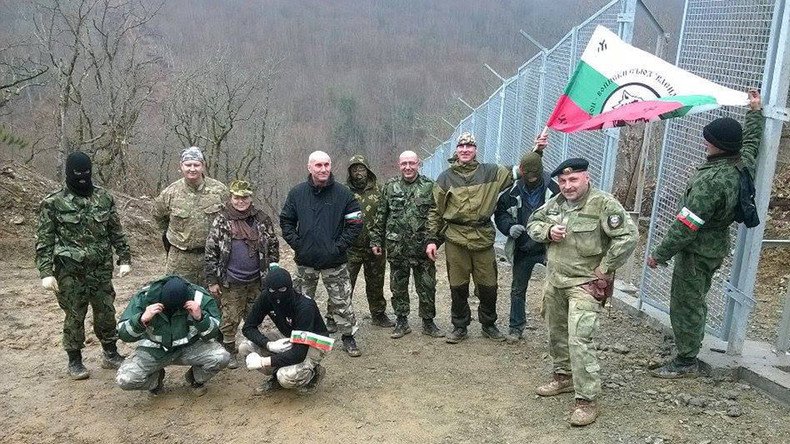
Bulgarian volunteers have begun erecting a fence on the country’s border with Turkey without authorization from the government to “prevent Turkish provocations" during elections, RIA Novosti reports.
“The situation on the border is difficult and to prevent provocations from Turkey, our volunteers began erecting a four-meter fence. We have set up around 11 km from the town of Malko Tarnovo, construction is in progress,” Nikolay Ivanov, leader of the self-described activist group, told the news agency.
The activists say Turkey may attempt to bring ethnic Turks holding Bulgarian passports into the country on buses to vote in Sunday’s parliamentary elections, influencing the political landscape in the country, giving an advantage to pro-Turkey parties.
Some 400 people were said to take have part in the work. While officials have not approved the building of the fence, they did not block the initiative, RIA reports. The fence, made of metal bars and razor wire, is fully funded by the volunteers, Ivanov said.
Turks are the largest ethnic minority living in Bulgaria with the DOST party representing their interests. Current polls suggest that the party won’t reach the 4 percent threshold needed to enter parliament, however.
Meanwhile, some 100 followers of the Bulgarian nationalist coalition United Patriots (UP) blocked the checkpoint at the Kapitan Andreevo-Kapikule border crossing, carrying slogans that said: “Hands off Bulgaria” and “No to electoral tourism,” Reuters reported.
The UP says that more than 1,000 buses may attempt to take voters from Turkey to Bulgaria.
“It is not normal for a foreign country to interfere in the election of another sovereign state,” Krasimir Karakachanov, co-leader of the United Patriots, said, according to the news agency. “Turkey is now trying to provide voters for DOST, a pro-Turkish party, because it knows that the support for this party in Bulgaria is very low.”
Over 700,000 Muslims are currently based in Bulgaria, while at least 200,000 ethnic Turks living in Turkey are holders of Bulgarian passports, according to AFP.
On Friday, the DOST party released a statement to the international media, “sounding the alarm against the danger of the elections being compromised.” According to a report on Bulgaria’s BNR public radio, Turks willing to cast a vote in Sunday’s elections were promised free transport by Ankara.
On Thursday, Turkish President Erdogan blamed Bulgaria for clamping down on ethnic Turks living there and violating democratic principles.
In response, Bulgarian President Rumen Radev said that “Bulgaria neither gives nor accepts lessons in democracy, especially from countries that do not respect the rule of law.”
The row is escalating while the relations between Turkey and a number of European countries have suffered a setback. Recently, Germany, Austria, Switzerland and the Netherlands banned Turkish officials from holding rallies in their cities ahead of the April constitutional referendum in Turkey.
Should Erdogan receive the required majority, the changes would significantly increase the powers of the Turkish president, with the leader significantly relying on expatriate voters.
Apart from that, Bulgarian security forces have recently deported two Turkish nationals and banned a third one from entering the country, saying they posed a threat to national security.
The UP is likely to come third in Sunday elections, with significantly increased support triggered by the inflow of Muslim migrants. The party is expected to play a major role in forming a new government.
